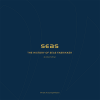A Discourse on Property: John Locke and his Adversaries
John Locke’s theory of property is perhaps the most distinctive and the most influential aspect of his political theory. In this book James Tully uses an hermeneutical and analytical approach to offer a revolutionary revision of early modern theories of property, focusing particularly on that of Locke. Setting his analysis within the intellectual context of the seventeenth century, Professor Tully overturns the standard interpretations of Locke\'s theory, showing that it is not a justification of private property. Instead he shows it to be a theory of individual use rights within a framework of inclusive claim rights. He links Locke\'s conception of rights not merely to his ethical theory, but to the central arguments of his epistemology, and illuminates the way in which Locke\'s theory is tied to his metaphysical views of God and man, his theory of revolution and his account of a legitimate polity.
ContentsAcknowledgments; Part I. Philosophical Underpinnings: 1. The contribution of the Essay; 2. The law of nature; Part II. Natural Rights: 3. Inclusive natural rights; 4. The background to chapter five of the Second Treatise; 5. Exclusive rights; 6. Property and obligation; Part III. Conventional Rights: 7. Property in political society; Notes; Bibliography; Index.
- Forlag: Cambridge University Press
- Utgivelsesår: 1982
- Kategori: Filosofi
- Lagerstatus: Ikke på lagerVarsle meg når denne kommer på lager
- Antall sider: 208
- ISBN: 9780521271400
- Innbinding: Heftet















